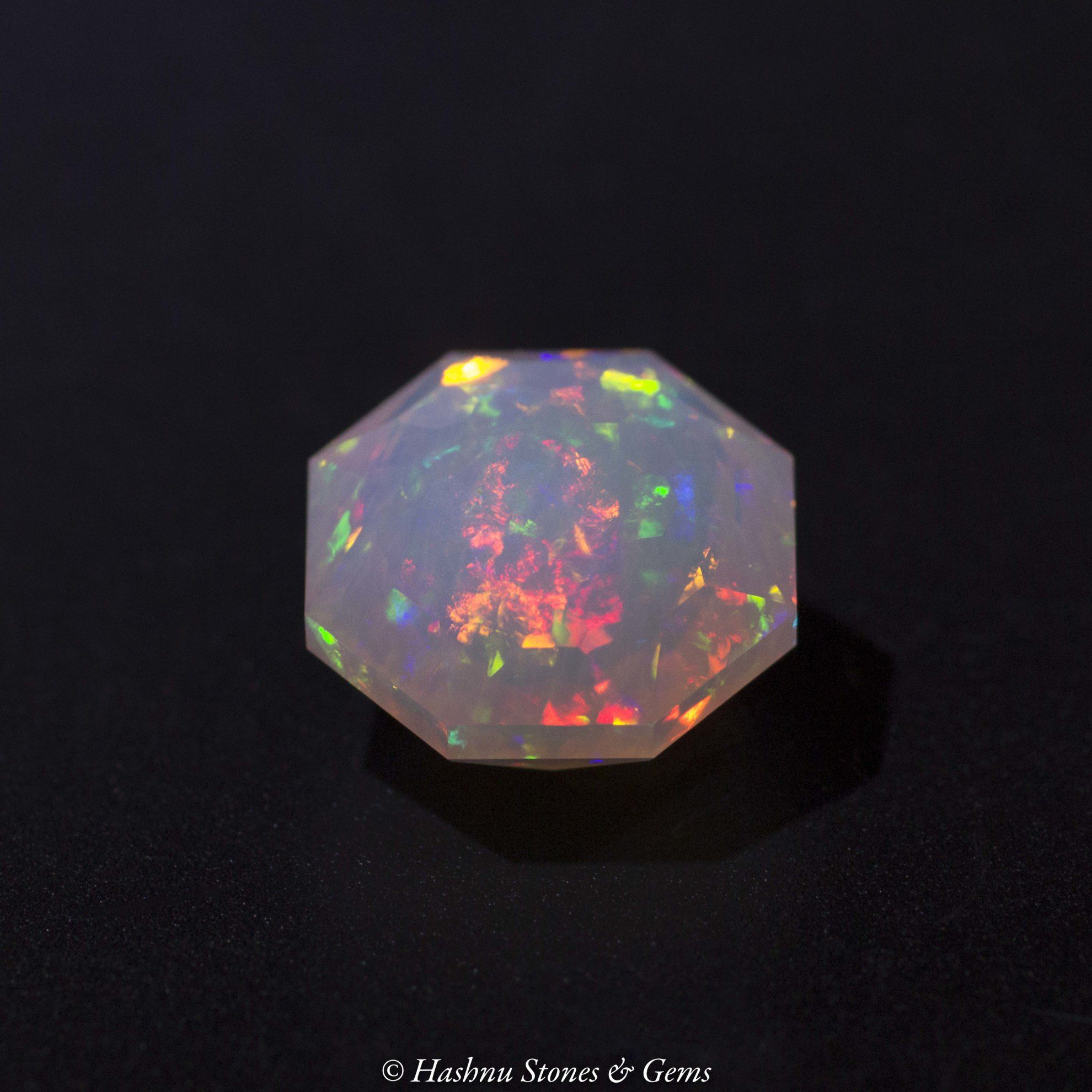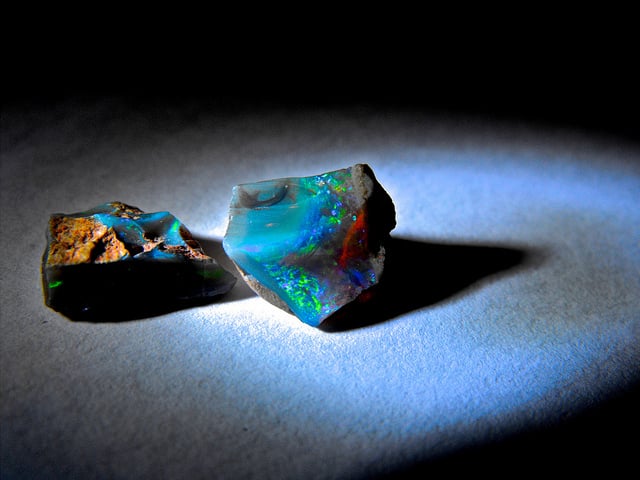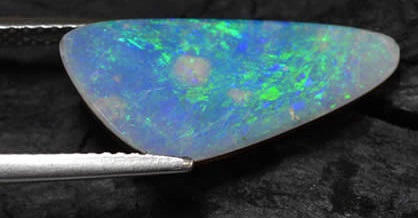
All but black opals have acquired a reputation for being unlucky. Although the beauty and uniqueness of opals have helped their owners disregard the superstitions, they persist.

Why Do Opals Have a Bad Rap?
In The Curious Lore of Precious Stones, the mineralogist George Kunz identified what he believed changed the popular perception of opal. In a chapter of Sir Walter Scott’s 1829 gothic novel, Anne of Geierstein, we learn the unusual story of the enchanted and mysterious Lady Hermione.
The grandmother of the titular character, she appeared to possess magical powers. At times, she seemed more an indefatigable spirit — an ignis fatuus or will-o’-the-wisp — than human. She always wore in her hair a golden clasp with an opal that “amid the changing lights peculiar to that gem, displayed internally a slight tinge of red like a spark of fire.” This gem seemed to reflect her moods, showing “a twinkling and flashing gleam which seemed to be emitted by the gem itself” whenever she became animated or agitated, “as if it sympathized with the wearer’s emotions.”

On the day of her daughter’s christening, drops of holy water struck her opal, which “shot out a brilliant spark like a falling star, and became the instant afterward lightless and colorless as a common pebble.” Hermione then collapsed. Two hours later, all that remained of her was a handful of gray ashes.
Take one popular but fictional tale of misfortune befalling an opal wearer. Combine with the fact that many gem cutters refuse to work on the fragile gem. (You break it, you bought it). Thus, you get the basis for the bad rap that still haunts this lovely stone.
The Traditional October Birthstone
Nevertheless, opal’s popularity as a jewelry stone belies its negative association. Until 1912, opal was considered the October birthstone. That year, the National Association of Jewelers released a modern birthstone list, which featured exclusively transparent gems. Thus, tourmaline replaced opal. Other gems were demoted, too. For example, March’s bloodstone was replaced by aquamarine. These changes have nothing to do with bad luck. Birthstone revisions continue to this day, mostly driven by marketing.
Of course, some still seize on the negative. Just the other day, a lady told me it was VERY bad luck to wear an opal if it wasn’t your birthstone. (If you’re skittish about wearing opal and you weren’t born in October, find out the hour of your birth. Opal is an alternative birthstone for those born in the 6 PM hour).

Opal Symbolism and Vision
Wearing opal as a jewelry stone is a relatively modern practice. However, in ancient times, people wore this stone for various reasons. Many considered opal to be beneficial to the eye and wore it to cure eye diseases. Some even believed it could render the carrier invisible. Supposedly, carrying an opal wrapped in a fresh bay leaf would keep others from seeing you. This superstition earned opal the popular designation of patronus furum, Latin for “patron of thieves.”

Opals and Magic
Perhaps extending on the invisibility theme, some believe opals aid in astral projection, a state of definite invisibility.
Supposedly, the inner fire or play of color of opals attracts forces that bring money. (Then again, the cost of fine opals alone points to the necessary presence of money).
Some believe the darkness and depth of the black opal can hold and release power for magicians in their arcane workings. Of course, whether they use this power for good or bad is up to their discretion and has no bearing on the stone itself.

A Gem with Many Associations
Once the stone of kings, second only to the emerald, the fragile opal has a convoluted personality and lore. Opal symbolism is as varied as the play of color of the stone itself. Many still regard the opal as a good luck stone. However, those who hold superstitions are more likely to latch on to the negative associations.

Source: https://www.gemsociety.org/article/history-legend-opal-gems-yore/

